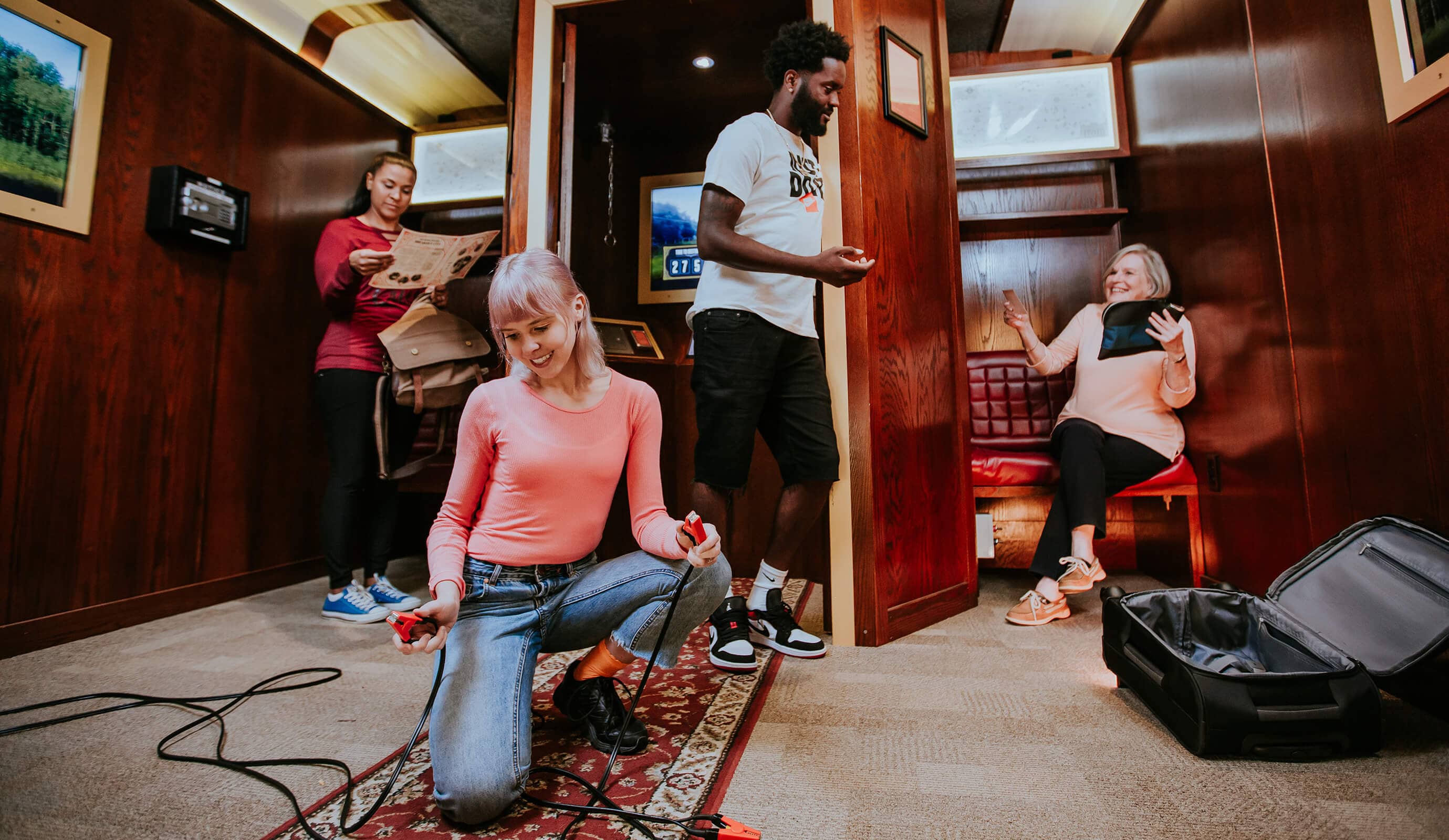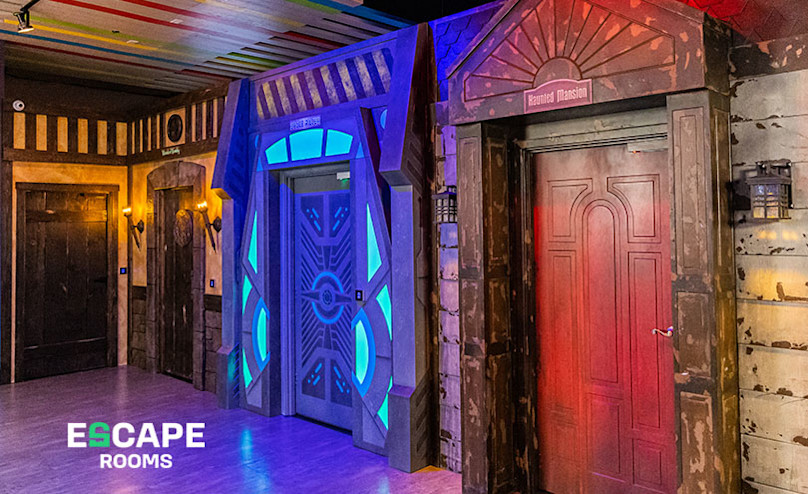Team Techniques: Exactly How to Work together Successfully in an Escape Area
Browsing the complexities of an escape space necessitates even more than mere excitement; it requires a well-coordinated approach based in clear interaction, calculated duty assignments, and adept time administration. Groups need to proactively listen per participant's insights, assign functions that straighten with specific toughness, and keep routine check-ins to make sure emphasis and prevent redundancy. By cultivating an atmosphere that values cohesion and adaptability, groups can considerably increase their efficiency and success rates. The subtleties of these techniques can transform the experience, but just how precisely can they be carried out to maximize the potential for success?
Establish Clear Interaction

To promote clear interaction, it is necessary to mark a main factor of get in touch with for info circulation. Short, focused updates from each team participant can keep the team notified without frustrating them with information.

Appoint Functions Tactically
While clear communication establishes the structure for effective team effort, appointing functions tactically ensures that each employee's staminas are made use of effectively. In an escape room scenario, the time-sensitive and complex nature of challenges requires an efficient technique to task delegation. By identifying and leveraging specific proficiencies, teams can optimize their analytic capacities and improve total efficiency.
First, analyze the special skills and characteristics of each participant. Someone with a keen eye for information could stand out in locating covert things, while a sensible thinker might be much better fit to fixing puzzles. It's equally vital to have a leader that can manage progress, handle the timeline, and make decisive calls when required. This role typically requires strong business and social abilities.
2nd, make sure that duties are adaptable and versatile. As new challenges emerge, the team has to be able to pivot, reallocating jobs as needed. This versatility helps keep momentum and stops bottlenecks that could occur as a result of rigid role assignments.
Eventually, a strategic approach to duty assignment not only optimizes the toughness of each employee however likewise fosters a cohesive setting, driving the group towards an effective retreat.
Make Use Of Diverse Skills
Acknowledging and using the diverse abilities within your group can considerably raise your performance in an other escape space. Each employee brings anchor special staminas to the table, and efficiently leveraging these capabilities can accelerate analytical and enhance total performance. A group member with solid analytical abilities might excel at deciphering complicated codes or patterns, while one more with keen observational capacities may rapidly find concealed hints that others could overlook.
Urge team members to articulate their understandings and ideas quickly, guaranteeing that all potential solutions are thought about. Additionally, assigning tasks that align with each participant's toughness can prevent bottlenecks and make certain that progression is constant.
Moreover, variety in abilities commonly equates to variety in assuming styles, which is vital in a getaway area setting. While some difficulties may require logical reasoning and accuracy, others might gain from creative and association of ideas. By identifying and leveraging this variety, groups can resolve a wider variety of difficulties extra efficiently, thus increasing their chances of a successful escape.
Manage Time Efficiently

Determine noticeable challenges and separate jobs based on group members' staminas, making sure that nobody is idle. This practice can assist keep the team focused and avoid time from slipping away unnoticed.
Furthermore, avoid one-track mind. If a puzzle is taking also long, turn team participants or go on to an additional challenge, returning later on with fresh viewpoints. Communication is vital-- keep everyone updated on resolved problems and continuing to be tasks to avoid repetitive initiatives.
Finally, utilize any tips or ideas sparingly however purposefully - best escape room. Recognizing when to ask for assistance can conserve valuable time. By sticking to these time monitoring concepts, teams can considerably improve their possibilities of a successful and delightful escape area experience
Debrief and Show
Representation is a necessary aspect of group development and enhancement in the context of escape rooms. Once the difficulty is finished, whether effectively or not, it is important for the team to participate in an visit this web-site organized debriefing session. This process allows group participants to examine their efficiency, recognize strengths, and identify locations for renovation.
Begin the debrief by discussing what worked out. Highlight details circumstances of efficient interaction, analytic, and partnership. Identifying these favorable habits reinforces them and encourages their repeating in future difficulties.
Following, attend to the barriers came across. Discuss minutes of confusion, miscommunication, or inefficient techniques. Urge an open and positive discussion where employee can share their viewpoints without fear of criticism. This cultivates a society of continuous enhancement and understanding.
Verdict
In verdict, successful cooperation in a getaway area is asserted upon clear interaction, tactical function tasks, the effective utilization of diverse skills, and efficient time monitoring. By developing a natural and adaptive team setting, the chance of efficiently solving challenges and attaining the goal of leaving the area is considerably enhanced.